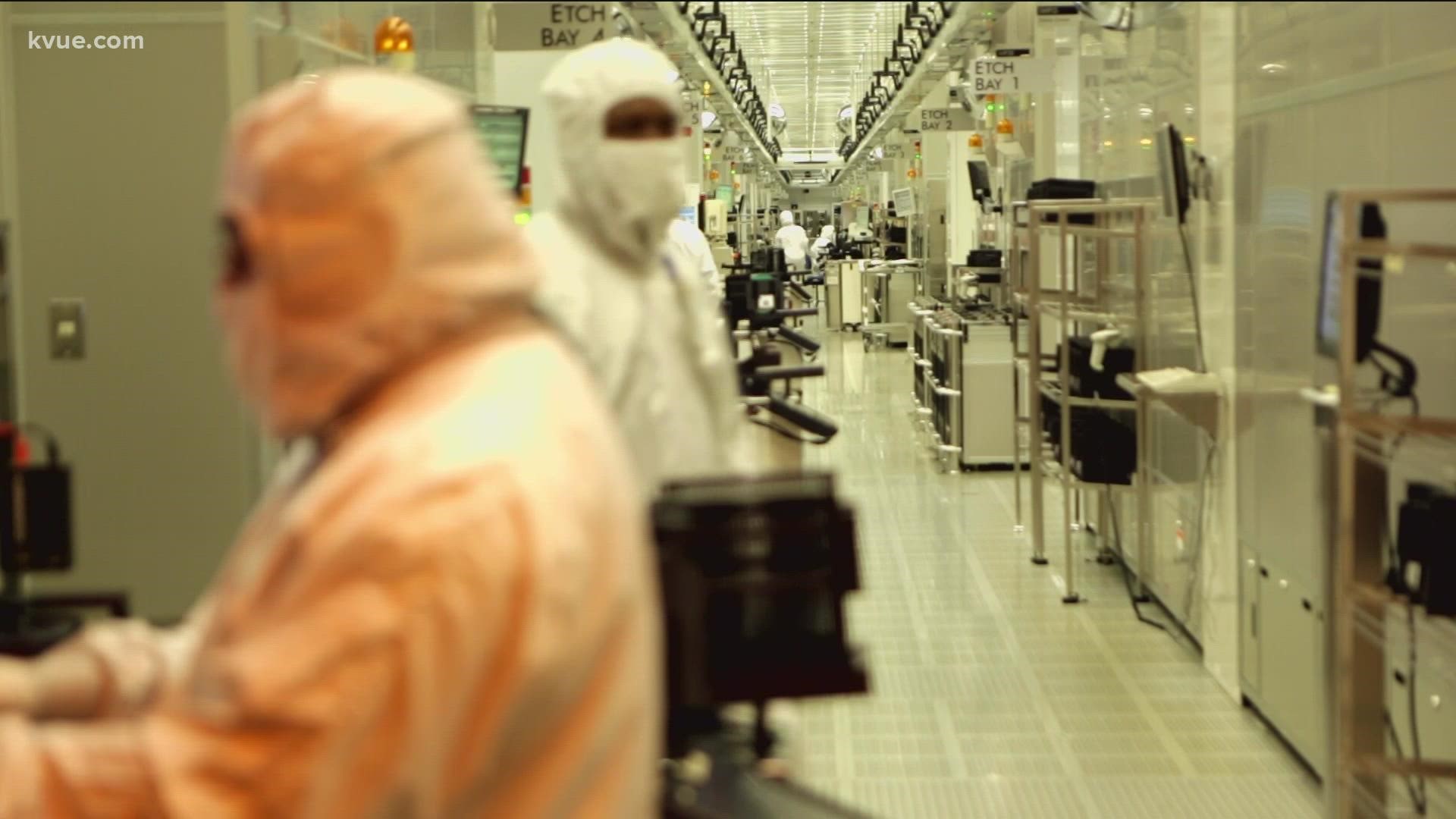TAYLOR, Texas — Samsung's arrival to Taylor brings approximately 6,500 construction jobs and 2,000 long-term jobs once the facility is built.
"It's a spur that will create more, more retail, more housing, more of everything, building more schools," Paul Fletcher, who oversees the Workforce Solutions Rural Capital Area, said.
Manufacturing has been an economic mainstay in Texas, providing resilient jobs for decades. Within manufacturing, advanced manufacturing of computer chips and electronics has had the most Gross Domestic Product growth in the past 20 years in the state, according to the Texas Comptroller's Office.
In Williamson County, the number of manufacturing companies jumped from 290 in 2010 to 425 in 2020, an increase of 46%. The number of manufacturing jobs went up by 88% in the same timeframe, according to data collected by JobsEQ and provided by Fletcher's office.
Samsung, while providing more jobs to that sector, is also bridging a gap exacerbated by the COVID-19 pandemic.
"We've all seen the stories of appliances and automobiles that can't be made right now because there's a semiconductor chip shortage," Fletcher said. "Plants like the one the Samsung is going to bring online will help provide that capacity for the future."
Williamson County Judge Bill Gravell affectionately calls the county "The Technology Superhighway of the World" because of the boom of advanced technology manufacturing: Apple's campus in the western area of the county, Dell's Round Rock headquarters and now Samsung's future facility on the eastern side.
"What's the future for Williamson County look like? Two days ago, no one around the world knew Taylor, Texas," Gravell said Wednesday. "Today, many cities in our world know who Taylor, Texas, is. What the future is for Williamson County is pretty simple. We are no longer just a destination for Texas businesses or American businesses. We're now a destination location for businesses from around the world."
On top of the jobs the facility will bring directly as a result of employment, Fletcher and other industry experts look forward to other smaller outfits cropping up to support Samsung.
"We're looking at 6,500 or so plus construction jobs, which relate to the 2,000-plus advanced manufacturing jobs and then all the indirect jobs that go along with that, that increased career opportunity in the area for supply industry," Fletcher said.
"You're going to see another influx of vendors and suppliers that follow this host project, if you will," Tony Bennett, who leads the Texas Association of Manufacturers, said. "It's just going to ripple through the entire economy with very high-quality, high-paying, high-benefit jobs for the citizens of the region."
On top of the jobs coming to the area, Samsung also agreed to host 24 internships for Taylor ISD students every year. The internships don't have a direct definition yet, according to Samsung, but Gravell claims they may start in the spring of 2022 as construction gets started.
"We just climbed one mountain and we got many more mountains to climb," Taylor ISD Superintendent Devin Padavil said Tuesday. "Now we need to seize that opportunity that we've been given through having a partnership with a company like Samsung and really make the most of it by giving our kids an outstanding experience where they can go into career fields that they may not have previously imagined."
"This gives the opportunity for educators to know that there's a demand we can begin to work more on a career path coming out from high school to some kind of post-secondary credential that will help people get started on their career path in the semiconductor industry or just advanced manufacturing in general," Fletcher said.
Samsung plans to start construction in 2022 in the hopes of producing its first semiconductor chips by the end of 2024.
PEOPLE ARE ALSO READING:

